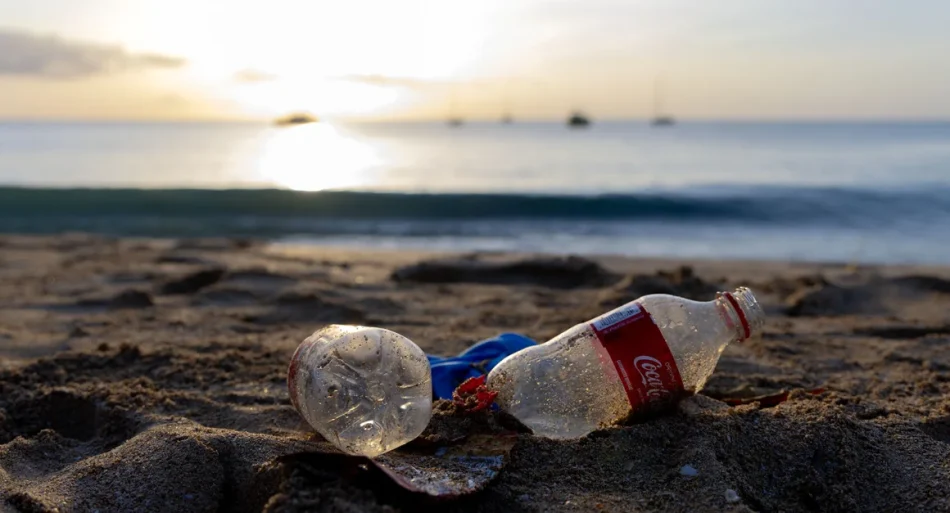Recycle OECS Project generates Insights into Plastic Waste Landscape of Dominica and Grenada

January 10, 2023 — New Waste Characterisation Reports are in for Dominica and Grenada. The findings are critical for tailoring the Recycle OECS Model framework to the waste landscape of these Member States. Dominica and Grenada are selected OECS territories implementing Model Demonstration projects, paving the way for the rest of the OECS Waste Management sector.
Dominica: For Dominica, the Waste Characterisation exercise could not have been more urgent, as plastic usage trends have significantly altered the waste landscape from 2002 when the Dominica Solid Waste Management Corporation last conducted a waste study. Between July 22 – 28, 2023, the Dominica Solid Waste Management Corporation (DSWMC) conducted a dual waste classification exercise covering co-mingled municipal solid waste and source-separated recyclable packaging waste at the Fond Cole Sanitary Landfill Site. It also sought to identify the sub-categories of plastics within the waste stream and assess the potential for recycling under the Recycle OECS initiative.
According to the 2023 Study report, plastics make up 24% of Dominica’s solid waste stream with film plastics being the dominant component at 53%. Plastics rank second to organics, at 29%, followed by paper and paperboard at 17%. Within the Recycle OECS project’s focus on PET and HDPE plastics, a detailed breakdown shows film plastics at 53%, Clear PET at 24%, Other plastics at 15%, and HDPE containers at 8%.

Overall, glass dominates in the waste stream at 54%, followed by plastics at 41%, and metal at 5%. Clear PET containers (54%), HDPE containers (22%), and Film Plastics (21%) are the primary components of plastics within this waste stream.
Even though Dominica stands out as the only Member State in the region with a dedicated curbside collection system for recyclables, the findings reveal limited participation of residents in the island’s curbside recycling collection initiative.
The Study found some consistency in the waste composition hierarchy between the 2023 and 2002 studies, however, there are notable changes, including a decrease in organics (45% to 24%) and there is an increase in plastics (16% to 24%). These shifts underscore evolving waste patterns influenced by global trends in manufacturing and consumption.
Grenada: Conducted from August 21 – 25, 2023, the Grenada Waste Characterization Exercise focused on understanding the composition of plastic waste within Grenada’s municipal solid waste stream. The findings reveal that plastic waste constitutes 18% of the total waste sampled, with film plastics as a significant contributor, constituting 47% of the plastic waste, followed by other plastics at 16%, clear PET containers at 15%, and HDPE containers at 13%. This means Grenada’s plastic waste for the previous year was approximately 7,235 tonnes.

A direct comparison between Grenada and Dominica reveals striking similarities in plastic waste composition. Both Member States share film plastics as the dominant component, reflecting common economic activities, tourism influences, and reliance on plastic-packaged imported goods.
Regional and Global Comparison: When compared to the other Recycle OECS participating Member States (Saint Lucia and Saint Vincent and the Grenadines) Dominica’s plastic composition at 24% showcases similarities with Saint Vincent and the Grenadines. Grenada’s plastic waste composition at 18% is relatively lower. However, all four territories’ plastic waste generation is comparatively higher than the global average for upper-middle-income countries, emphasizing the common challenge of plastic waste in the region.
The findings from Grenada and Dominica’s waste characterization studies have far-reaching implications for the OECS region and beyond. Notably, both nations surpass global averages of 12%. They both exceed the average for other upper-middle-income countries where plastic waste constitutes 11%, shedding light on the challenges faced by small island developing states.
The Grenada Waste Management Authority and the Dominica Solid Waste Management Corporation have embraced a collaborative “twinning” arrangement, which involves knowledge exchange, research and data sharing, possible resource pooling, a joint approach for public education and awareness, and active collaboration during project implementation. The goal is to develop a replicable model that can be easily adapted to suit the circumstances of other OECS Member States and document a case study for Small Island Developing states.
Recycle OECS is a pioneering initiative that is setting the stage for a paradigm shift in waste management across the OECS. It is funded by the European Union under the EU-Caribbean partnership for cooperation in the field of circular economy and solid waste management, and implemented by the OECS Commission in collaboration with the Agence Française de Développement (AFD).

Danny Moonie Communications / Knowledge Management Specialist, Organisation of Eastern Caribbean States
OECS Communications UnitOrganisation of Eastern Caribbean States





